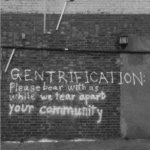Executive Summary
This report sets out to look at the allegations made in the petition that will be heard on the 20th of January 2021, petitioning the council to stop or delay the Liveable Street Scheme across Tower Hamlets as it structurally discriminates against people on low income, working families & BAME and against a ‘one Tower Hamlets’ vision. Combined with the submissions made by residents, I will seek to answer the following questions on a prima facie basis:
A. Was there direct discrimination by PCL Consult of residents with protected characteristics under the Equality Act 2010?
B. Was there indirect discrimination by PCL Consult of residents with protected characteristics under the Equality Act 2010?
C. Has there been a breach of contract by PCL Consult in the contract they have with Tower Hamlets Council, in the way they carried out the consultations?
D. Has Tower Hamlets Council breached its Public Sector Equality Duty?
Liveable Streets is a £15 million programme, which aims to improve the look and feel of public spaces in neighbourhoods across the borough, making it easier, safer and more convenient to get around by foot, bike and public transport. More commonly known outside of Tower Hamlets as Low Traffic Neighbourhoods (LTNs).
Given the context of austerity and cut back in services by Tower Hamlets Council, it is one of the largest increase in expenditure by the Tower Hamlets Council. Instead of being welcomed, it has caused much controversy, with the accusation that the program disadvantages working class communities and is designed to accelerate social cleansing through a rubric of Green Gentrification.
Putting aside the merits of the program, however serious concerns have been raised as to the way the Liveable Streets Consultation have been carried out by PCL Consult. PCL Consult being the Company given the contract to carry out the consultations by Tower Hamlets Council.
Given the impact of the Livable Streets program, changing permanently entire streets one would expect an effort to have an inclusive consultation to get maximum input from residents. However, it appears that is not the case. In fact, the consultations prima facie have been devised to exclude large sections of the residents, a case of indirect discrimination and in some cases perceived direct discrimination.
Cases of discrimination, breach, in the face of it, Tower Hamlets Councils, Public Sector Equalities Duty under the Single Equalities Act 2010. Residents who have protective characteristics recognised and protected by law, have been discriminated on that basis. Protected characteristics, such as age, race, disability and socio-economic inequality.
Categories of residents, who combined make up a majority of Tower Hamlets residents. Yet due to the way the consultations have been carried out, have been shut out of a process, in new provisioning of service that affects them, access to the streets outside their homes.
There is a prima facie case of institutional and systematic discrimination on a wholescale level of vulnerable and disadvantaged residents, therefore in line with Tower Hamlets Council’s own safeguarding policies the Liveable Street Program should be suspended pending an independent investigation. It needs to be independent, given the large amounts of political and financial capital that has been expended on the programme, it is not feasible for such an investigation to be carried out in house by Tower Hamlets Council in an impartial manner.
Moving away from the question around the Consultation there is also the unresolved issue of lack of Equality Impact Assessments.
An immediate suspension and independent investigation of the Liveable Streets Program and conduct of PCL Consult is required. This is not some isolated incident but an institutional and systematic approach designed to exclude residents on the basis of their protected characteristics in law. As evidenced by nearly 2,500 signatures collected by the petition, a remarkable feat given the petition went live during the lockdown period. As what we have in effect is the greatest violation of civil rights in Tower Hamlets, on an industrial scale, since the infamous racist ‘Son’s and Daughters’ housing policy.
Full Report is here:
Introduction to the virtual meeting held on the 15th January 2021, with residents to receive their oral submissions for the report.


I’m Anwar khan
I do not agree with the livable street rule as no form of consultation or I information was shared with sufficient time scale. My mother is a pensioner that has been a resident in one of the streets which has recently been changed to a livable street which restrict us from being able to visit her and thud adequately care for her.
Disabled people, who are often dependent upon “taxi” services ( In the widest sense of that term ) are severely discriminated against under these proposals.
One of my neighbours has been affected, both physically & financially by a very similar scheme in Waltham Forest – who, like Tower Hamlets disregard anyone not on their “favoured” list ….
We absolutely do not need these so called enhancements that prohibit movement around the estate. At such a high cost! Why spend these millions of pounds on cosmetics when this borough is in desperate need of investment in social welfare.